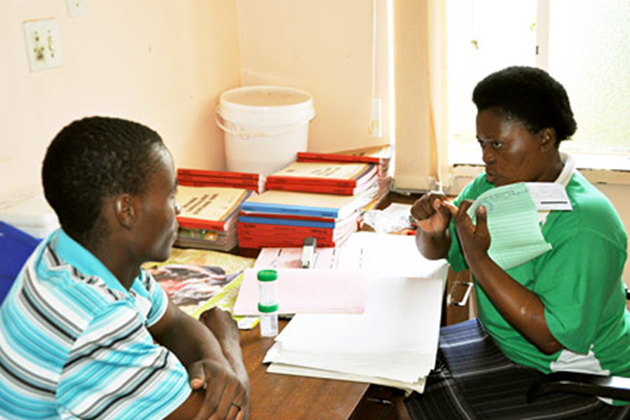
On World AIDS Day, we celebrate the remarkable progress over the last two decades in reducing deaths and illness from HIV, but at the same time recognize that efforts must accelerate to eliminate the unacceptably high burden of this disease. Communities of people living with HIV and community health workers are at the heart of successes achieved in the HIV response; they will and should play a key role in driving progress toward global 90-90-90 targets by 2020 and 95-95-95 targets by 2030.
Universal health coverage means that all people have access to a full range of essential health services they need, when and where they need them. Community health workers, when adequately educated and supported, have proven effectiveness in increasing access, acceptability and affordability, especially to vulnerable groups and key populations who bear a disproportionate weight of HIV infection, illness and death.
Building on state-of-the-art evidence contained in the WHO HIV treatment guideline and in the WHO guideline on health policy and system support to optimize CHW programmes, WHO will soon launch an evidence guide outlining HIV tasks and roles community health workers can deliver safely and effectively. Across the arc of care, this includes: health promotion and education, prevention, testing, treatment, care and clinical management support, integrating activities across related diseases, and addressing cross-cutting issues like stigma, discrimination, education and counselling.
Achieving the greatest gains and ensuring quality of care requires appropriate health policies and structures for community health worker programmes. This evidence guide also outlines strategic enablers related to selection and roles, competency-based training and certification, supportive supervision and management by other health workers, fair remuneration and decent work, health system linkages, and community embeddedness.
Accelerating progress against HIV and making health for all a reality requires adopting evidence-driven strategies that:
- enable individuals and communities affected by HIV to take charge of their own health and that of their loved ones;
- ensure access to health workers providing quality care; and
- drive investment and accountability through political leadership.
The strategic design and effective implementation of CHW programmes represents a critical contribution toward Are you ready to optimise your community health worker programme as a key tool in achieving sustainable gains in the drive to end HIV/AIDS? Contact workforce2030@who.int to request your copy of the upcoming evidence guide.
